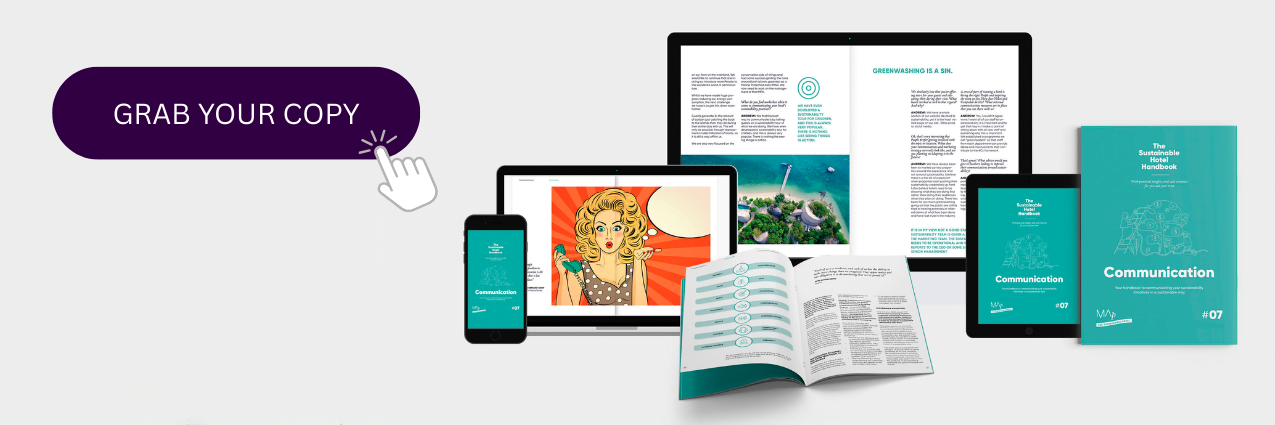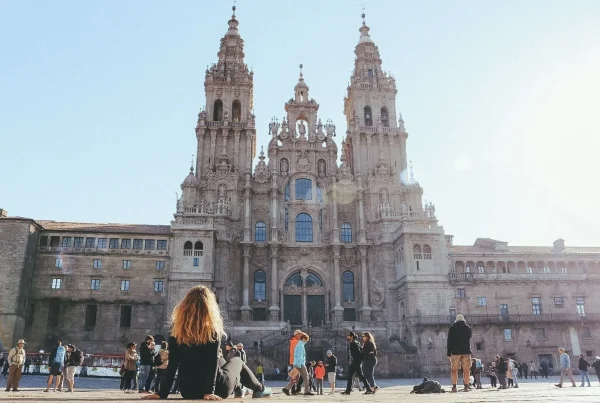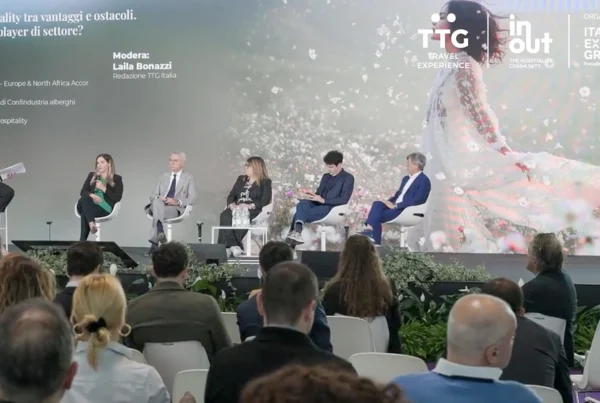
Copyright: Collab Media via Unsplash
With the EU Empowering Consumers for the Green Transition Directive set to come into force in 2026, clear and credible sustainability communication will no longer be optional. By 2026, all EU member states must produce legislation that mirrors the new EU directive as it reshapes how companies, especially in tourism and hospitality, can talk about sustainability. Right now, member states have until March 2026 to draft their regulations and prepare for the transition. This makes it critical that companies begin shifting their language to meet the deadline in 2026.
This shift means that vague or unsubstantiated claims like “eco-friendly” or “green hotel” without proof or certification will no longer be tolerated. For hotels, it’s both a challenge and a golden opportunity: adapt your messaging to the new rules, and you can stand out with credibility and gain trust.
We’ve spent years working in sustainable hospitality – and we know it’s not always easy to communicate well or even at all. That’s why we created The Sustainable Hotel Handbook: Communication, now in its second edition, to help you translate sustainable action into clear, trustworthy messaging that works. With this handbook, you wouldn’t need an agency, but if you need personal help, to understand the new directive’s timeline or align your messaging to the coming regulations, we are here to guide you through the process.
What’s Actually Changing: Key Elements of the New EU Directive
In 2024, the European Union adopted a new Directive (EU) 2024/825 that amends two key pieces of legislation: the Unfair Commercial Practices Directive (UCPD) and the Consumer Rights Directive (CRD) to crack down on greenwashing and ensure stronger consumer protections. These changes must be implemented by all EU member states by March 2026, with enforcement beginning from September 2026.
Right now, the EU directive is ushering in a transition phase, meaning that companies have time to prepare for the adoption of the new laws in their respective countries. As it is up to each member state to decide how they would like to integrate the directive, it is essential that companies within the EU pay close attention to their national legislation. Planning ahead, monitoring legislative changes, and shifting operations to more sustainable means are essential in this current phase to be ready for the changes in March 2026.
The aim? To ensure that all sustainability-related claims are reliable, evidence-based, or independently verified, while also encouraging the manufacturing industry to produce durable, repairable, and circular products. It’s not just about what you say. It’s about backing it up, clearly and credibly.
The directive is being introduced as extra protection for consumers against bad quality products, hoping to empower them through the green transition and help them make informed choices. However, the regulations will still affect the hospitality industry and how they communicate.
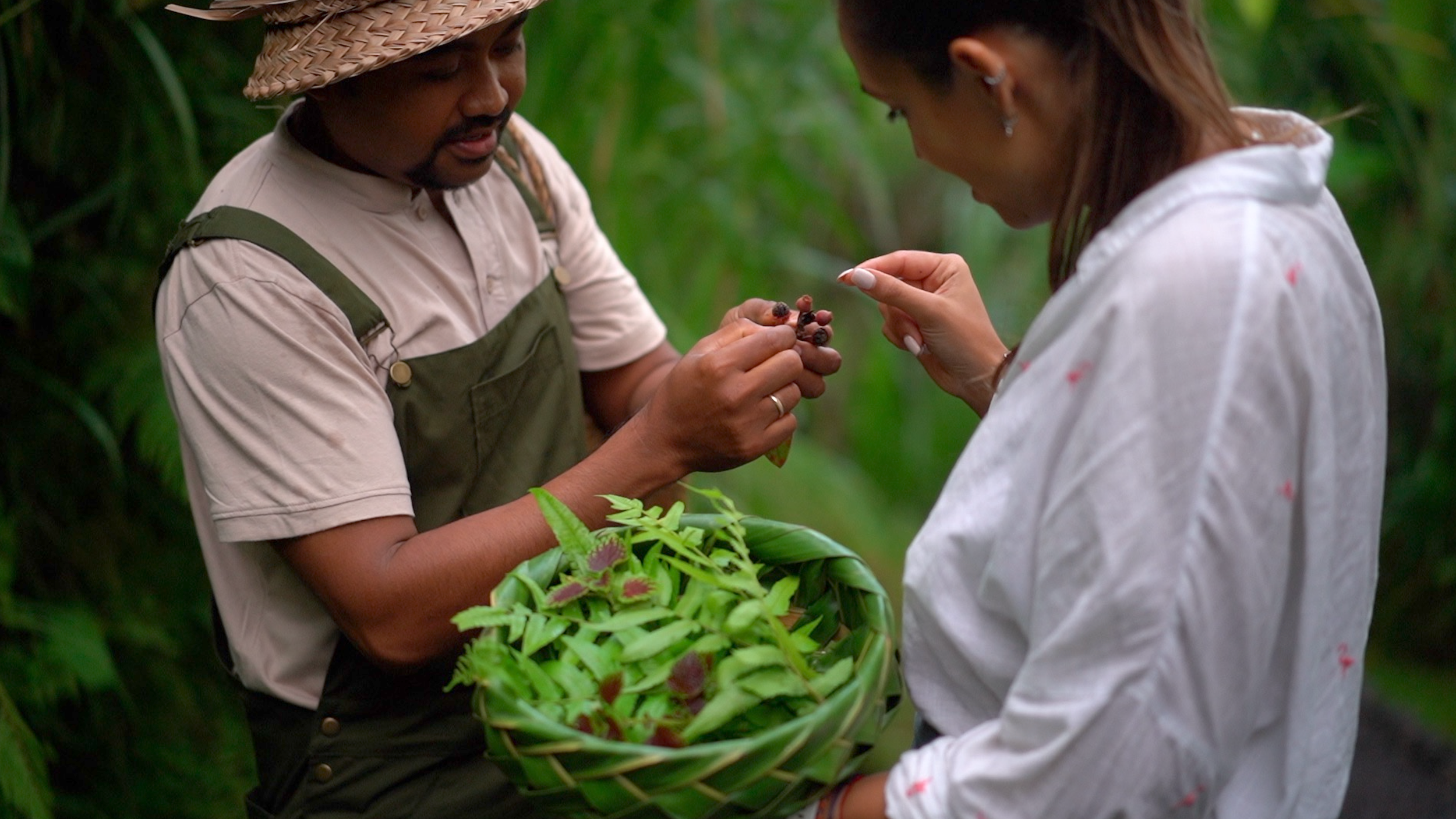
Copyright: Buahan, a Banyan Tree Escape
Here’s a breakdown of what’s changing and what it means for hotels:
Clear rules on sustainability and green claims
-
Vague buzzwords and green claims are banned: Terms like “climate-neutral”, “eco-friendly”, or “green” must now be substantiated with verifiable evidence; generic or self-declared claims are no longer acceptable.
-
Third-party certification becomes essential: Any sustainability-related label or logo must come from a recognized, independent certification scheme. Self-certification is not enough.
-
Claims about future performance must be backed up: Promising that you will reduce your emissions or aim to use fewer resources must now be supported by concrete and measurable transition plans, which are preferably backed by third-parties.
-
When advertising the benefits of a product or service, the benefits must be a relevant, direct result supported by actual evidence.
-
Comparisons must be fair and fact-based: If you compare your hotel’s performance to others (e.g., emissions, waste reduction, sustainability scores), you must disclose your methodology and make all relevant data accessible to consumers.
Once again, these changes are merely EU guidelines for what member states will have to implement through their own national legislation. How this is done, the strength of the regulations, and through what means the countries do this is up to them and it is critical that companies adhere to the unique country specific rules.
Why This Matters for Hotels
These rules don’t just apply to physical products. They also govern how services, including accommodation and travel experiences, are advertised and described. If your hotel makes claims about sustainability, biodiversity protection, carbon offsetting, or local impact, you will need:
-
Proof (e.g. certifications, data, third-party audits)
-
Clarity (no vague language or unverified comparisons)
-
Consistency (across your website, booking platforms, social media, menus, guest-facing materials)
This may sound overwhelming, but for hotels that truly care about sustainability, it’s an opportunity to stand out from the noise and earn real trust. Our Sustainable Hotel Handbook: Communication was created specifically to help hotels meet these expectations – with checklists, templates, and legal alignment guidance to stay ahead of the new rules.

How This Will Make Communication Credible
The new directive sets a clear framework for how sustainability should be communicated; not with vague promises, but with verifiable facts. These four principles lie at the heart of the shift:
-
Substantiation: All sustainability claims must now be backed by proof: verifiable data, third-party certification, and (for future goals) transition plans with measurable steps.
-
Specificity: Generic buzzwords are no longer acceptable. Companies must clearly state what exactly is sustainable about a product, service, or operation – and how.
-
Relevance: Claims must be relevant to the product or service being promoted. Benefits not directly linked to the customer experience or product performance are no longer allowed.
-
Consistency: The same messaging and claims must appear across all touchpoints – from website to booking platform, to in-room materials. This builds trust and avoids accidental greenwashing.
Together, these rules strengthen consumer rights by ensuring access to reliable, comparable, and actionable information; especially on durability, repairability, and environmental impact.
Misleading claims and early obsolescence tactics (e.g. products designed to fail or become unusable) will be banned across the EU. And any green logo or label used in your hotel’s marketing must come from a recognized, independent certification scheme – not invented in-house.
In short, the directive doesn’t just regulate marketing: it encourages a culture of transparency. For hotels that already walk the talk, it’s a chance to stand out.
The Risk and the Opportunity for Hospitality
The new directive raises the stakes for hotels using green claims. If your sustainability messaging is vague, unverified, or misleading, it’s not just a legal risk – it’s a reputational one.
Take Ryanair: The airline claimed in ads to have the “lowest emissions” of any European carrier. But regulators found this misleading, and investigations revealed it was actually one of Europe’s top polluters (RTE). The ads were banned, and the brand faced widespread backlash. That’s the real danger of greenwashing. It erodes consumer trust, loyalty, and credibility.
Hotels face similar pressure. As sustainability becomes a top travel media topic, many brands are tempted to oversell their impact or stay silent when their actions fall short. Both greenwashing (overstating) and greenhushing (withholding) can damage your brand.
But there’s a powerful flip side: Get your communication right, and it becomes a real asset.
Luxury hotel group Soneva, for instance, publishes detailed impact reports on everything from emissions to biodiversity. By backing their claims with data, they build trust and demonstrate leadership.
Transparent, specific, and credible messaging not only ensures compliance – it builds loyalty, attracts media attention, and future-proofs your brand as sustainability regulations evolve. You don’t need to be perfect. But you do need to be authentic, verified, and consistent.
By aligning communication with certified sustainability practices, hotels not only boost credibility and visibility but also stay ahead of evolving EU regulations like the upcoming Green Claims Directive. In a tightening legal landscape, transparent messaging is key to building trust, attracting guests, and future-proofing your brand.
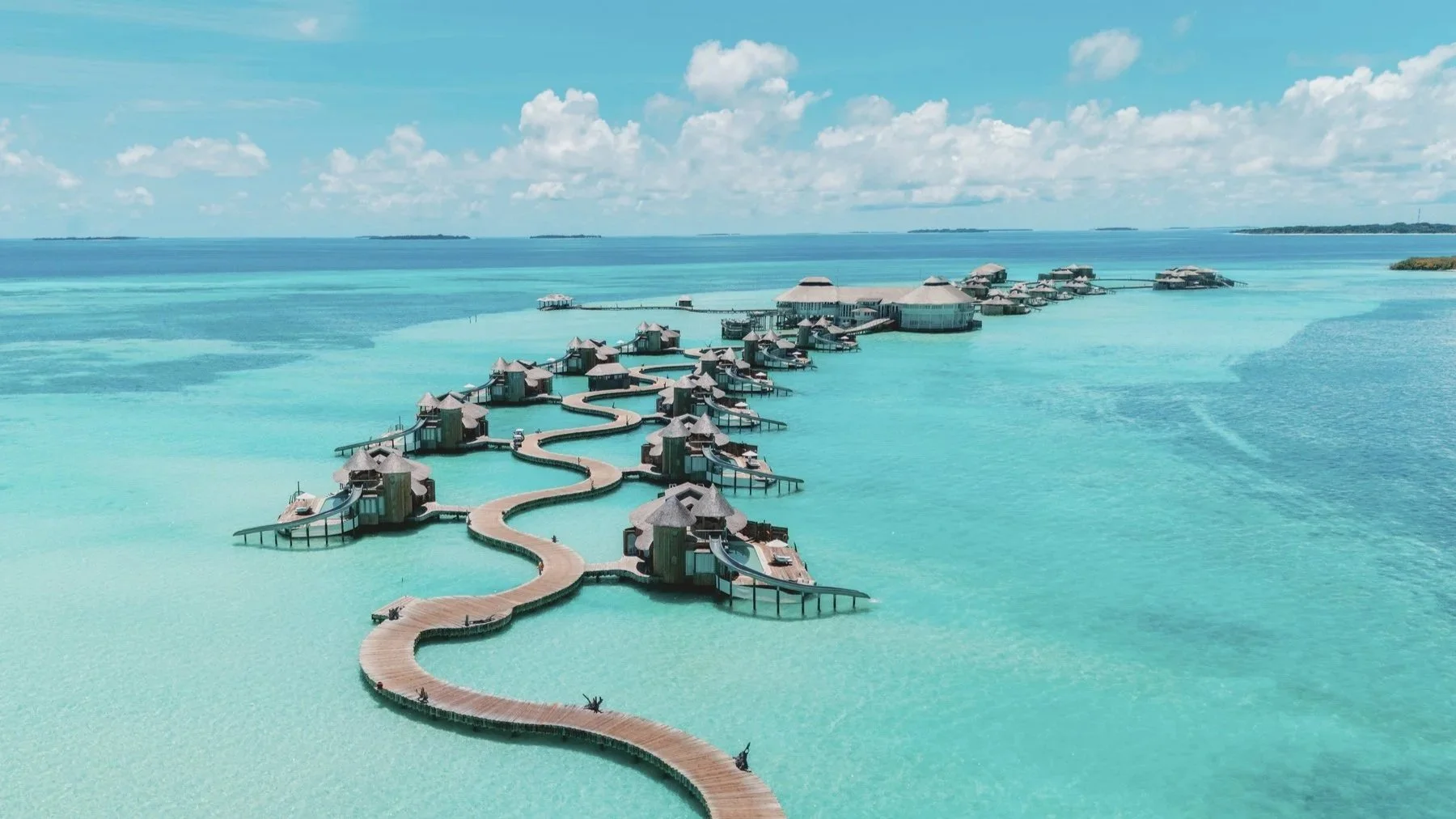
Copyright: Soneva Jani
Preparing for the Green Transition
Adapting to the new directive may feel overwhelming, but we’ve seen hotels of all sizes make meaningful progress. No full-time PR team required.
Start with education. Everyone on your team, from management to front-of-house, should understand your hotel’s sustainability values and messaging. Map out your key messages clearly, so what you promise is what you deliver.
Next, make sure your claims are evidence-based. This means verifying initiatives through certification, tracking progress with real data, and avoiding vague language. All communication should reflect your actual practices and align with your values.
But good communication starts with good action. Sustainability must be visible in the guest experience – whether it’s a zero-waste kitchen, community-led experiences, or circular amenities. What matters most is that your sustainability efforts are tangible, honest, and part of daily operations.
The formula is simple: act responsibly, track your efforts, and communicate them clearly. Do this, and you’ll not only meet the new legal standards; you’ll build lasting trust with your guests.
Case Study: Locanda Mistral – Communicating with Heart
Our client Locanda Mistral, a small, family-run hotel in Italy’s Valle Maira, is a standout example of how boutique properties can communicate sustainability with clarity and heart – without a big budget or in-house PR team.
What they do have is strong conviction. “If you believe in it, you can communicate sustainability easily and clearly,” says Renato, the hotel’s owner. “Then you and your views are authentic, and you communicate in an authentic way.”
At Locanda Mistral, communication starts with intention. “First of all, think about what you want to implement,” Renato explains. They’ve mapped out their key sustainability messages to ensure alignment between their values, actions, and guest experience.
The second pillar is belief. “If you don’t believe in it yourself, then it doesn’t make sense.” Their initiatives – like sourcing ingredients locally and guiding hikes through the surrounding landscapes – aren’t just operational decisions; they’re embedded in every guest touchpoint.
Third comes clarity. “Communicate clearly. Because if you do that, your community grows.” Locanda Mistral avoids vague green buzzwords and instead shares specific, concrete practices across their website, social media, and press outreach. The result is credible, consistent storytelling that reflects real impact, and aligns with the EU directive.

At the center of their sustainable communications journey was the Sustainable Hotel Handbook: Communication, which is a hotelier’s guide to creating clear, authentic, and transparent messaging. “Sustanability was not tangible for me – it was always distant.,” Renato explains, “I didn’t know how to efficiently implement sustainability into my hotel.” As he became familiar with the step-by-step plan laid out in the handbook however, he felt confident that he could communicate his message properly. “The handbook opened up a new world for me… I understand more about what I can successfully implement step-by-step and what truly makes a difference.”
There’s no need to read the handbook from back to front, but have it open to the relevant page as you tackle each project. Depending on what you need, the handbook is there to supplement your actions with extra guidance, tips, and expert voices.
It’s important to remember that, in Renato’s wise words, “It’s no use to talk about Mount Everest if you can’t manage to climb the first hill.” Our wisdom and expertise can guide you on this sustainable communications journey, teaching you valuable insights and lessons on how to implement strategies, but it is ultimately up to you to make it happen.
Bonus Resource: The Sustainable Hotel Handbook – Communication

Understanding sustainable communication can be difficult, especially for boutique hotels who are unsure where to begin in order to comply with sustainable regulations. Fortunately, we at Rupp Public Relations have partnered with MAp Boutique Consultancy, a B Corp female-led firm, to provide hotels with a guide to the communications world.
“We’ve poured years of industry insight into one beautifully designed, practical guide. Interviewing hoteliers throughout the process made it even more valuable. Their real-world experiences helped us shape a tool that actually works in practice.”, says Natascha from Rupp Public Relations.
To support hotels navigating this new regulatory landscape, we created the Sustainable Hotel Handbook: Communication – now in its second edition.
-
Built for hoteliers, consultants, and educators
-
Includes a 7-step roadmap to build your communication strategy
-
Packed with templates, exercises, checklists, and real-world case studies
-
Covers both internal and external communication plus legal alignment
-
Available in English and German
This practical handbook was designed to help hotels understand their values, clarify their messaging, and communicate it authentically. It tackles the risks of greenwashing, supports hoteliers in turning sustainability into a competitive advantage, and ensures alignment with the new EU directive. Rather than offering theory, it provides actionable tools – built by experts who work in sustainable hospitality every day.

And for those just getting started – this is not a book you have to read cover to cover. Think of it as your go-to reference: open any section and find what you need, when you need it. Use it to upskill your team, brief your marketing agency, or align your operations and storytelling around real sustainability impact.
While this handbook is an important starting point toward sustainable communication, it cannot implement change without action from hotels. It can guide you toward the right path, but it’s your initiatives, values, and honesty that bring the story to life. Buy your copy here and make use of our Launch Offer: 10% off until 31 October 2025.
“This handbook was created to make sustainability communication less risky and more rewarding for hotels of all sizes.”, states Magdalena from MAp Boutique Consultancy.



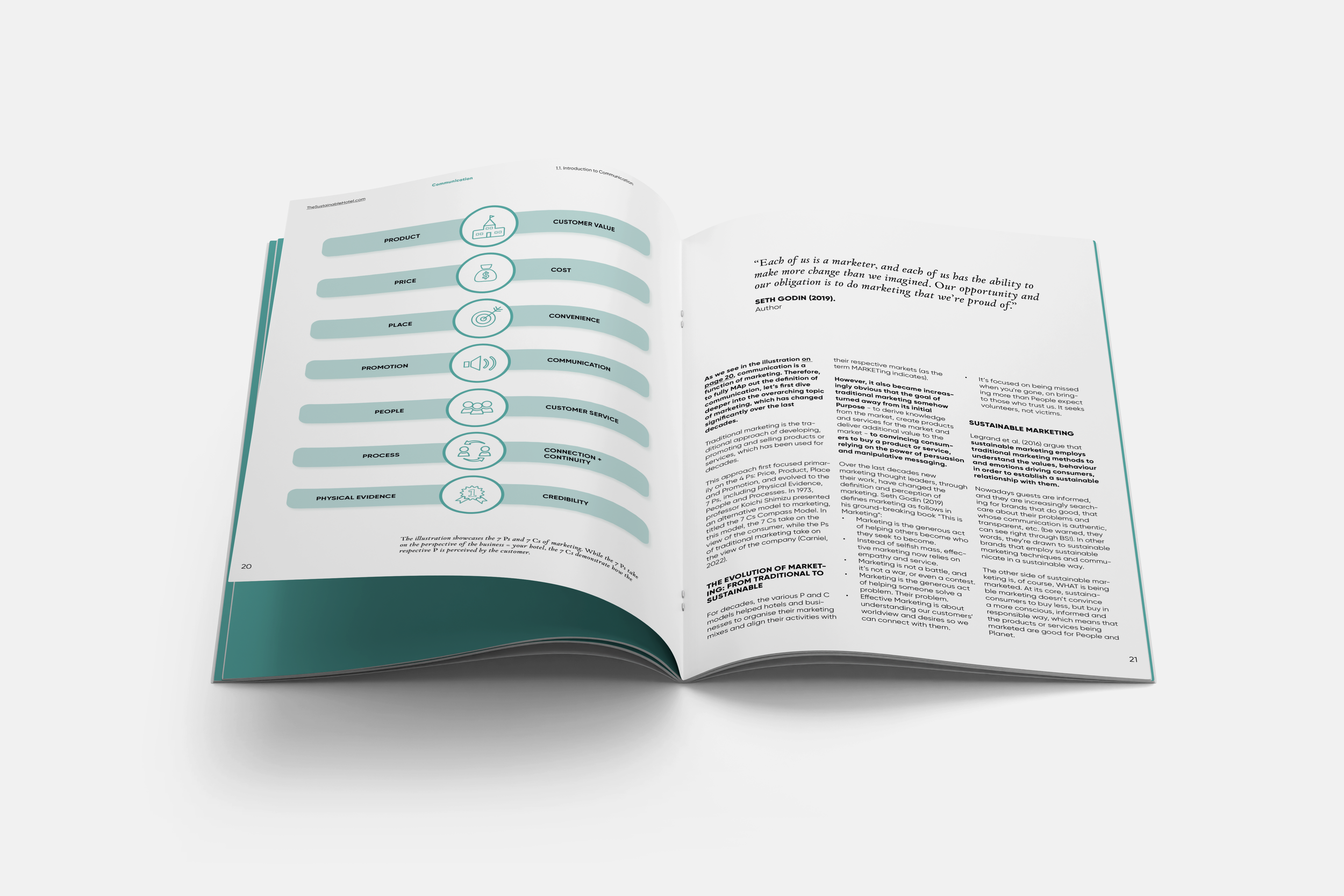
Communicate with Purpose
The EU directive isn’t just a set of rules. It’s an invitation to get your house in order – to rethink how you talk about what matters for your future.
This is a defining moment for hospitality. Clear communication builds trust, resilience, loyalty, and leadership. And in a world of increasing scrutiny, that might be your greatest asset.
So what are you waiting for? Start communicating what you already do; and do it well.
